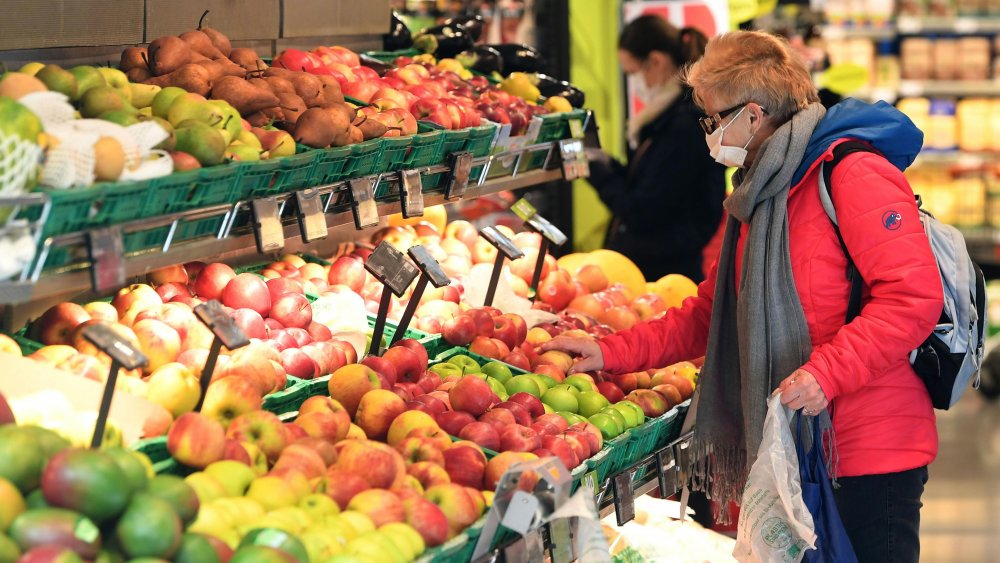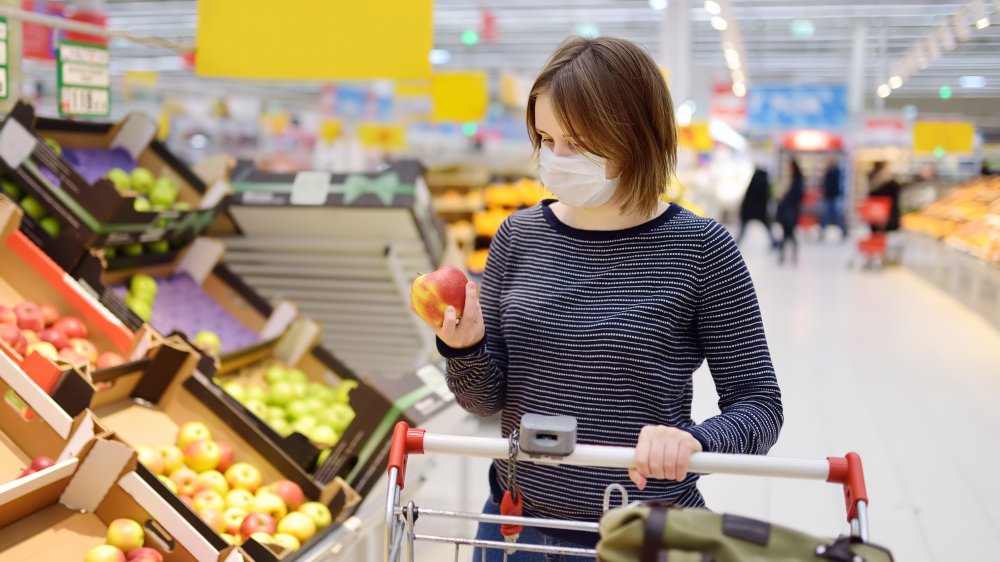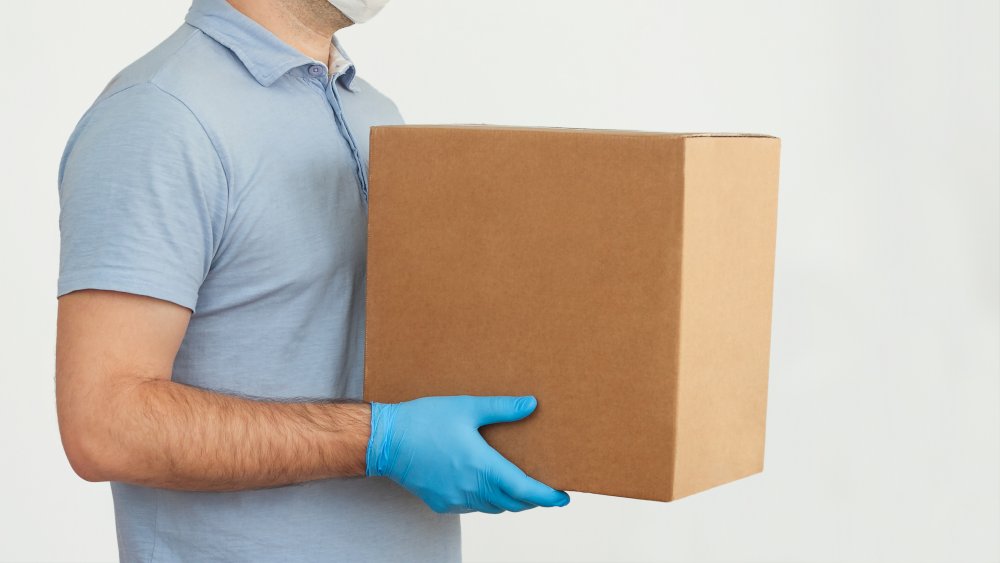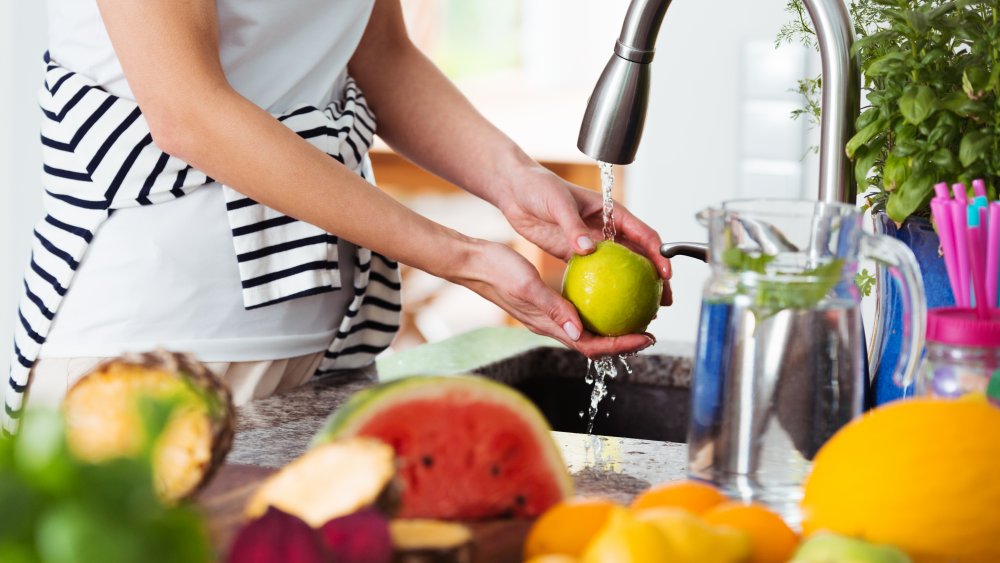What You Should Know Before Sanitizing Your Groceries
It seems like a long time ago, but among the things we used to do regularly — and take for granted — included buying groceries, bringing them home, unpacking bags, and then putting them away. Thanks to the COVID-19 pandemic, concerns over social distancing, and fears over coming into contact with surfaces which could (unwittingly) be contaminated by someone who might have the virus, stress-free grocery shopping has become a thing of the past.
That the virus is passed from person-to-person is well known. We've all been told that a sick person can infect someone else by coughing and sneezing on that person. But we also know that the virus can be picked up if someone touches an infected surface and then touches his or her own mouth, eyes, or nose. And while surface-to-person transmission isn't exactly something that happens every day, Canada's CTV News reports it is still a matter of concern. CTV also says the coronavirus can live on cardboard for about 24 hours and on plastic and stainless steel for as long as three days after the virus is smeared on those surfaces.
So what happens if we pick up groceries that some infected person has touched or sneezed on?
Keeping your hands clean when you are food shopping is important
If you're going to get groceries yourself, Oregon Health and Science University professor of geriatrics Elizabeth Eckstrom tells The Guardian, "As soon as you get there, use hand sanitizer, and touch only what you need to touch. Wipe down your cart handle, and then use the hand sanitizer again." If you're out and about, you should also try not to use your phone at all, or disinfectant it as soon as possible.
Whether you've done your own shopping or have chosen to get your groceries delivered, one thing remains: The stress of getting home in one piece gets replaced with the stress of what to do with those groceries once you get them inside the house. Before anything else, Yale Medicine infectious disease doctor Jaimie Meyer says you need to remember one thing: "While the SARS-CoV-2 virus can theoretically live on inanimate surfaces for very long periods, this does not mean that it is transmitted from person to person this way. The primary mode of transmission is still person to person contact via droplets" (via Health).
The FDA and USDA say food packaging has not caused COVID-19
We're heard government agencies say that food supplies are all right. The Food and Drug Administration says that the food chain is safe for both people and animals, and that there is "no evidence of human or animal food or food packaging being associated with transmission of the coronavirus that causes COVID-19." The U.S. Department of Agriculture have also said that food and food packaging are safe.
Other doctors, like food microbiologist Donald W Schaffner tell The Guardian that there is absolutely no need to go through the trouble of disinfecting your groceries. "Right now there's no evidence that [the virus is] spread through food. There's no evidence that it's spread through food packaging. That doesn't mean that we might not learn new evidence tomorrow that would change our thoughts on that, but right now that's what we believe," he said.
You can use wipes on food containers, but not on fruits and vegetables
Still, Colorado nurse and infection preventologist Lauren Bryan tells Health that if you want to play it super safe, you can use a disinfectant wipe to clean plastic packaging and cereal boxes — but there isn't a need to move the contents of a package into another container. You may also want to wash both fruits and vegetables under running water, but by all means, please don't use any household cleaners or disinfecting wipes on food. "If you do, there's a higher chance of getting sick from ingesting [chemicals] rather than from COVID-19," Meyer said.
Whether or not you choose to give your groceries an extra clean, Meyer says it is be a good idea to disinfect all your surfaces, from tables to countertops, with either a disinfecting wipe, or some kind of cleaner which contains bleach. It's a good habit to develop, as it is recommended that we should be doing this a few times a day anyway.
And if you're really worried about contamination from food or food packaging, infectious disease epidemiologist Julia Markus reminds us that hand washing is still the best defense. "Better than disinfecting, the thing we keep saying over and over again is to just wash your hands," she said.



